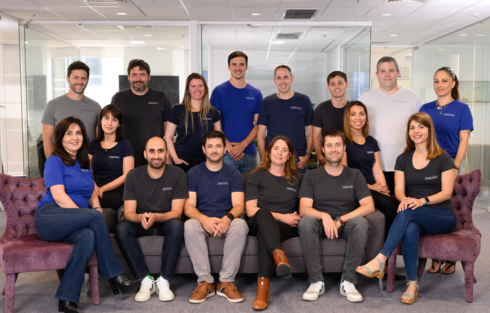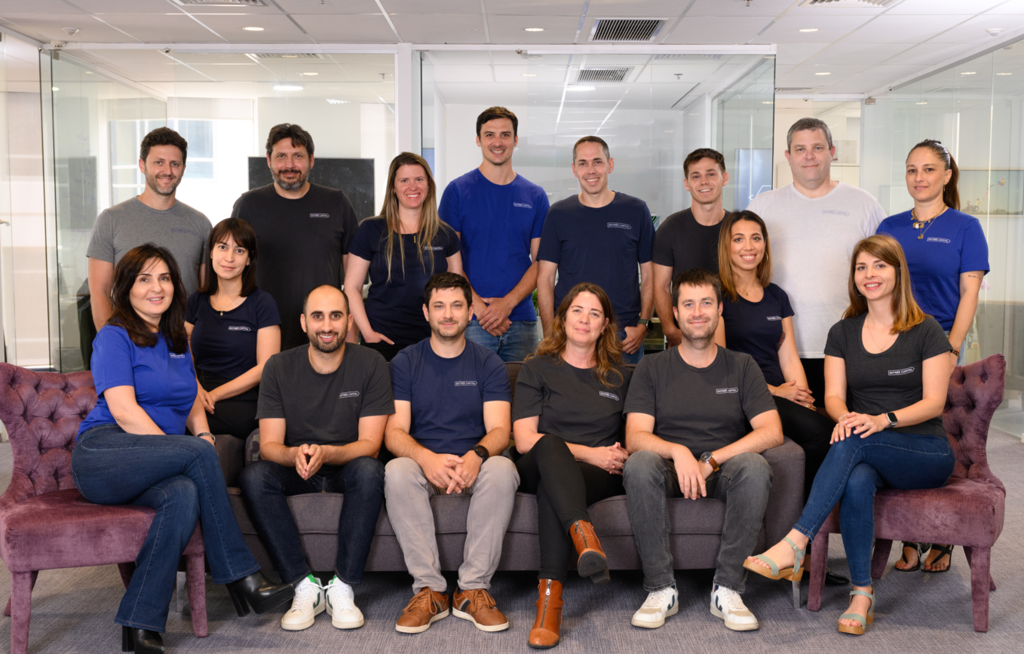
2024 VC Survey
“The impact of the war in Israel will last at least five years”
Entrée Capital joined CTech for its 2024 VC Series to share how actions taken today can set Israel up for success in the future.
“There will be a long-term impact of the ongoing war in Israel which we anticipate will last at least five years,” said Entrée Capital. “Israel is thus facing double the challenges of other global tech hubs.”
2024 is already proving to have a very different set of challenges for Israel compared to 2023. Whereas last year the country battled internal struggles during the judicial reform protests, the next few months and years will be focused on the war with Hamas and shaping the future of the country for generations to come.
“Israel needs to prioritize strengthening the education system for it to be competitive with international information and technology economies, especially in the fields of mathematics, Physics, English, and Computer Science,” the VC firm continued. “Creating a foundation for the success of the next generation of entrepreneurs and startups is essential. While some existing companies will endure and others may not, it is crucial to look forward to the young people who will shape the future of entrepreneurship.”
Entrée Capital joined CTech for its new 2024 VC Series exploring some of the trends the high-tech community in Israel can expect to see this year.
VC fund ID
Name of the fund/funds: Entrée Capital
Total assets: $1.25 billion under management
Leading partners: Avi Eyal, Ran Achituv, Eran Bielski, Adi Gozes
Latest investments in Israel: Bluewhite, Darrow, Guidde, BRIA AI, Lasso Security, Myrror Security, Anchor
Selected portfolio companies: monday.com, Riskified, Breezometer, OpenWeb, Rapyd, HiBob, Stripe, Glovo, Coupang, PillPack, SeatGeek, Stash, Gusto.
From your perspective, was 2023 a ‘lost year’, or can the events that happened during it be seen as a springboard for opportunities in 2024?
2023 was challenging, and 2024 has not started much differently. It was a year that high-tech realized that it could not wait out the market and startups needed to figure out how to become capital efficient and achieve profitable growth. Many companies have now found that they are not breakouts and are stuck in the $10-50m ARR space, where the only path forward is being profitable and selling to private equity or other larger tech companies. We do see several companies with great teams overcoming the challenges of the past year, and this will position them for a strong future. Founders are more focused on their business despite the distractions of societal challenges and the war. The few very exceptional companies will continue to thrive despite market challenges.
What do you believe is more crucial to the state of Israeli tech: the influence of global processes and the global economy, or the local events ranging from the political protest to the war state?
Both global and local factors influence Israeli tech: The global economic landscape and the internal situation within the country. Even if the global situation is stable and secure, an unstable political, societal, and wartime period in Israel will prevent us from achieving balance. Similar to the rest of the world, the economic situation in a specific country should be adjusted following the global slowdown. It becomes more difficult to achieve this adjustment if there is a lack of internal stability.
There will be a long-term impact of the ongoing war in Israel which we anticipate will last at least five years. Israel is thus facing double the challenges of other global tech hubs.
Israel needs to prioritize strengthening the education system for it to be competitive with international information and technology economies, especially in the fields of mathematics, Physics, English, and Computer Science. Creating a foundation for the success of the next generation of entrepreneurs and startups is essential. While some existing companies will endure and others may not, it is crucial to look forward to the young people who will shape the future of entrepreneurship.
Has the prestige of Israeli high-tech been damaged, or are the protests and the war merely a 'small bump in the road' from which the sector can recover within months?
Israeli high-tech is demonstrating its resilience and capabilities more than ever in recent years. It has managed to overcome crises like the COVID pandemic and operates despite concerns. This makes Israeli tech stronger and more resistant to challenges and crises which, in turn, gives us a reasonable chance at overcoming our difficulties.
How much effort was required of you to maintain the fund's status with your investors in 2023? What were their primary concerns and how did you address them?
We are fortunate to have a small investor base that is very supportive of our efforts. We communicate with our LPs regularly and in full transparency, especially during the war. In the past quarter, it was crucial for us to clearly present to investors the current reality in our Israeli portfolio, where the situation is with each company and its founders during the war. As a result, many of our investors demonstrated even greater support and empathy toward the situation.
How are you preparing for the most pessimistic scenarios, such as the continuation of the war in Gaza deep into 2024, the opening of another front in the north, or further reduction of government support for high-tech?
It can be said, in one way or another, that we always prepare our entrepreneurs and ourselves for difficult times- not because we are pessimistic, but because we prefer to be realistic and well-prepared. Back in H2-2021, we advised startups to cut costs so they could maintain their runway, anticipating that 2022 and 2023 would not be easy. At the outbreak of the war, we prepared both our founders and ourselves for long-term effects that will persist throughout the coming year, and provided resiliency guidelines, disaster recovery plans, and psychological assistance.
Did you raise fund money in 2023 for an existing fund or a new one? What are your expectations regarding this matter for 2024?
Entrée last raised capital in 2022. We typically have a 3-year cycle so in all likelihood, we won't go back to the market until 2025, provided that our results continue to be in the top 10th percentile of the industry.
How many investments did you make in 2023, and how does it compare to 2022?
Due to these circumstances, our investing activities have decreased by about 50% over the past year.
In your view, will the amounts and/or the number of deals in 2024 be more like those of 2023 or 2021-2022?
In 2021, there was a surge in deals and funding that appeared to be exaggerated. Looking forward to 2024, we can expect a more balanced situation similar to 2023 and at a macro funding level similar to 5-6 years ago. Various factors such as the global economy, geopolitics, market recovery, investor sentiment, and industry-specific dynamics will influence the number and size of deals.
Which high-tech sectors will you focus on in the upcoming year? Which areas will maintain their prominence, and which ones appear less attractive?
As a generalist investor, we will continue to look for the best teams developing future technology, but we are most likely to focus on deep tech opportunities as well as AI, SaaS, and Data.
Which type of companies stand a better chance of garnering increased attention from VC funds this year - early-stage or advanced rounds?
Despite the relatively large amount of capital available for startups, companies have been overvalued in the past two years and they will thus face financing challenges in their later stages. As a result, some companies have not raised additional funds to hopefully avoid flat and down rounds. We believe that, as they run out of cash in 2024, they will be open to market-related valuations (inevitably down rounds). This in itself is healthy. It creates a new base and reset for companies. The ones that try to push the valuation envelope will either not raise, or their structures/obtuse funding will become their death trap in the future.
What changes will you implement in your approach to evaluating investments in startups in the coming year, compared to the previous two years? What practices will you abandon, and what criteria will you now demand from founders?
The Entrée’s 4Ts formula of evaluating startups - Team, Technology, TAM (Total Addressable Market), and Timing.
Do you think it is likely we will witness encouraging IPOs, the emergence of unicorns, or remarkable exits in 2024?
Most likely, we'll see more lower valuation exits and very few IPOs. Unicorns will be far and few in between.
Practical and current tips for founders planning upcoming money-raising efforts:
Focus on healthy growth and unit economics: Optimize your operations and financial metrics to ensure efficient resource allocation and profitability.
Look for a partner and not a financial investor: When raising capital, it is crucial to select investors who understand both the company's short-term objectives and its long-term vision. Seek out investors who are aligned with your mission, understand industry challenges, and are committed to supporting your growth. The alignment facilitates strategic guidance, access to networks, and ongoing partnerships that foster mutual success. Building relationships with investors who understand and support your company's goals will ensure that strategic decisions are made with a unified vision, ultimately enhancing your chances of long-term success and sustainable growth.
Can you choose two portfolio startups you believe are poised for success in the coming year and explain why you think they deserve attention?
Darrow
Company: Darrow is an AI-Powered Justice Intelligence Platform that scans real-world data to detect harmful events, determine the number of victims, predict the outcome, and assess the financial value of a case. Using generative AI, Darrow detects impactful legal violations, matching plaintiff's lawyers with their next big case so they can stop spending valuable hours on business development and focus primarily on litigation.
Funding: The last round was Series B ($35M) - Total funding of $54M.
Founded: 2020 by Evyatar Ben Artzi (CEO), Gila Hayat (CTO).
The combination of leveraging AI in the legal sector is what gives Darrow a competitive advantage and positions them as leaders in their industry. Darrow brings together a versatile team, comprised of members from diverse backgrounds, showcasing their outstanding capabilities and performance by promoting justice in the world. The founders have a clear vision of changing the world, and that is what makes them great.
Anchor
Company: Anchor gets businesses paid on time, and effortlessly. Anchor’s autonomous billing solution is a cloud-based platform that redefines B2B billing, collections, and payments. By providing an end-to-end billing and collections solution, and removing all manual labor from these processes, Anchor eliminates the risks of fraud and human error in B2B payments.
Funding: $15M.
Founded: 2021 by Rom Lakritz (CEO), Omry Man (CRO), Leeor Aharon (CTO).
The B2B payments space is highly fragmented due to each vertical requiring some level of specialization. Anchor is a unique fintech startup in the landscape and has found a distinct opportunity. They have reached product-market fit and are growing exponentially each month. We believe it will become a key player in the industry through deploying its solutions to thousands of service-oriented businesses.













